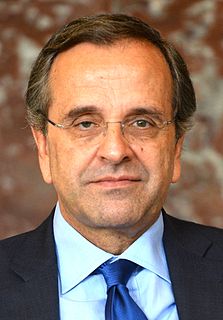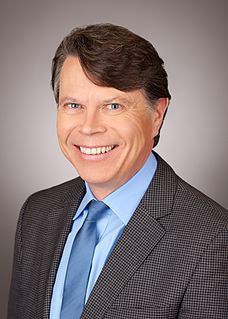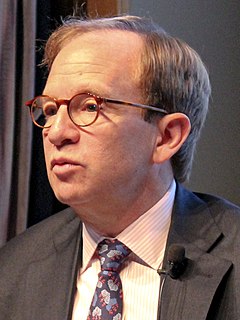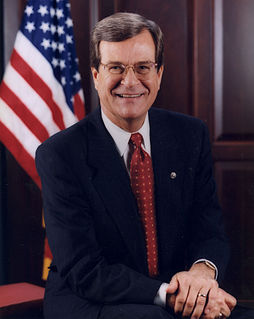A Quote by George W. Bush
Year after year in Washington, budget debates seem to come down to an old, tired argument: on one side, those who want more government, regardless of the cost; on the other, those who want less government, regardless of the need....Government has a role, and an important role. Yet, too much government crowds out initiative and hard work, private charity and the private economy....Government should be active, but limited; engaged, but not overbearing.
Quote Topics
Related Quotes
For those who fancy that government's projects are uniquely important, or for those who imagine that holding government office makes someone unusually saintly or trustworthy, entrusting government with power that we would never entrust to our neighbors or other private citizens might seem sensible. To me, it's dangerous, unjustified, and unjustifiable.
One of the reasons some of the advocates of ever larger government and more government intrusiveness get nervous about discussions of the actual cost of government is that they fear if the people had a discussion about what government costs, the true cost of taxes, that they might not want as much government as they are presently getting.
The analysis in the era of Ronald Reagan and Margaret Thatcher was that government was interfering with the efficiency of the economy through protectionism, government subsidies, and government ownership. Once the government "got out of the way," private markets would allocate resources efficiently and generate robust growth. Development would simply come.
In the United States the government has become less important. So, it's democracy, but as each year passes it seems that the government plays less of a role in people's lives, and so they're living in whatever situation their employment imposes upon them more than they're living in a grand political system.
Democratic politicians want to solve the crisis of poor education by taking more of your money and using it to reduce classroom sizes in the government schools. Republican politicians want to solve the crisis by taking more of your money to provide vouchers to a handful of the poorest students in each area, paying for a part of the tuition expense at private schools. But before long this 'reform' would make those private schools indistinguishable from the government schools ... Vouchers are an excellent way for the government to increase control over private schools.
Government has three primary functions. It should provide for military defense of the nation. It should enforce contracts between individuals. It should protect citizens from crimes against themselves or their property. When government-- in pursuit of good intentions tries to rearrange the economy, legislate morality, or help special interests, the cost come in inefficiency, lack of motivation, and loss of freedom. Government should be a referee, not an active player.
I believe that the role of limited government should be looking after the needs of veterans, the elderly, children and those institutions that improve the quality of life for struggling families - I don't believe that government should bend to serve the needs of subsidized multi-national corporations and entitled billionaires.
You know, if government were a product, selling it would be illegal. ... Government contains impure ingredients - as anybody who's looked at Congress can tell you. ... government practices deceptive advertising. And the merest glance at the federal budget is enough to convict the government of perjury, extortion, and fraud. ... in a nutshell: government should be against the law. Term limits aren't enough. We need jail.
The real problem is that "limited government" invariably leads to unlimited government. If history is to be any guide and current experience is to be any guide, we in the United States 200 years ago started out with the notion of limited government - virtually no government interference - and we now have a massive quasi-totalitarian government.

































